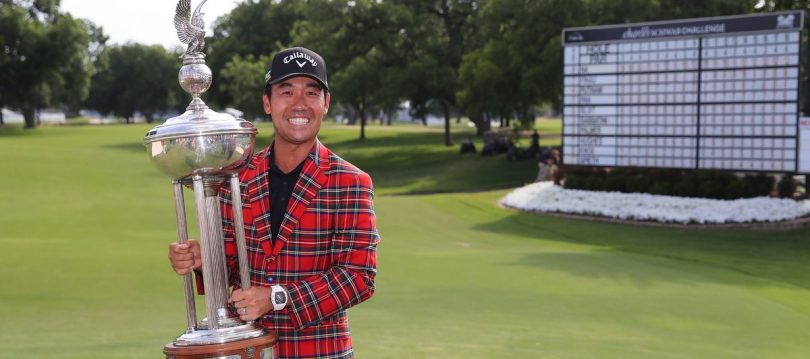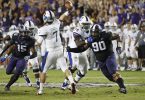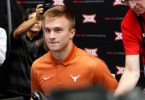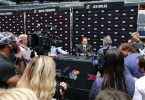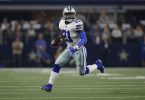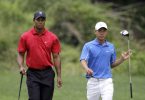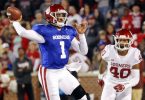FORT WORTH – Myong Chong was only 14 when she took her first baby steps in mainland America in 1977, less than 25 years since the ending of one of two of the hottest spots in the Cold War.
The first leg of the trip for the three sisters went from home in Seoul, South Korea, to Hawaii to take care of all the administrative formalities for immigrants with dreams.
From there, a crew of pilots set the girls down in the Central Texas hub of Killeen.
Even in February, Chong remembered the heat.
“Hot and sweaty,” she joked.
“My first impression was kindness. People were kind. This lady drove me to church every Sunday and gave me peppermints.”
Chong knew nothing about her new home. She didn’t know the language or the culture, but she went to school, learned and grew into an American citizen of Korean descent.
Despite all the political hyperbole of the day, in the United States still are centered the hopes and aspirations of the human race.
As an adult, she took advantage of all the liberties of America and today owns Hanna Isul, a holistic skincare brand based in Fort Worth.
She is considered a pioneer in skincare research and development with a number of patents on skincare technology.
“We have such amazing opportunities in America,” she said. “I could not open a company in Korea. When you work hard people appreciate that. There are so great people around you.”
Chong is also the executive vice president of the Federation of Mid-South Korean Association, a coalition for Korean-Americans who live in Texas and a few of the contiguous states, plus Mississippi and Arkansas.
On Saturday, she spoke at the 24th annual celebration of Killeen’s Sister Cities relationship with Osan, Korea.
These events are very important to her.
“I tell people that freedom is not free,” Chong said. “Someone sacrificed and shed their blood for us.”
This is why she couldn’t be happier with Kevin Na’s victory at the Charles Schwab Challenge at Colonial Country Club on Sunday.
“We are so extremely proud of Kevin Na,” she said. “We are very excited and proud of him. It’s takes long, hard tireless practice. His mind is really focusing on the golf. You have to be very balanced. It takes a lot of patience and self-control.”
Na was the best, most consistent player among a field that struggled with Colonial and the wind conditions. He outlasted it all, finishing at 13 under, four strokes better than Tony Finau.
More than that, though, for Chong, Na is an ideal champion on Memorial Day weekend, a model representative of two heroic peoples.
Like Chong, Na came to America from South Korea with his family as a child. Na was an 8-year-old when he took his first steps on U.S. shores.
He was coincidentally born on Sept. 15, 1983, the same day the Soviets secretly found and began collecting the wreckage and flight recorders of the doomed Korean Air Lines’ Flight 007, mistakenly believed to be a spy plane shot down by the Soviet Union.
The episode was a continuation of America’s role in Korea, which began with the start of the war in 1950.
In the aftermath of his second victory on the PGA Tour a year ago at The Greenbrier, Na asked his interviewer on CBS if he could veer off track for a moment and switch to Korean to deliver a personal message.
Na broke down.
“Thank you for supporting me and believing in me to win. Until this win it’s been hard but you have been supporting me. Thank you so much and I love Korean fans. I’m so happy to win.”
An estimated 1 million South Korean citizens perished in the war for a free, united Korean peninsula.
More than 227,000 South Korean soldiers died in the war, with another 43,500 who were never found.
“Long exploited by the so-called colonial powers, with little opportunity to achieve any degree of social justice, individual dignity, or a higher standard of life such,” Gen. Douglas MacArthur told a joint session of Congress after being fired by President Truman in 1951. “The peoples of Asia found their opportunity in the war just past to throw off the shackles of colonialism and now see the dawn of new opportunity, a heretofore unfelt dignity, and the self-respect of political freedom.
“The tragedy of Korea is further heightened by the fact that its military action is confined to its territorial limits. It condemns that nation, which it is our purpose to save, to suffer the devastating impact of full naval and air bombardment while the enemy’s sanctuaries are fully protected from such attack and devastation.
“Of the nations of the world, Korea alone, up to now, is the sole one which has risked its all against communism. The magnificence of the courage and fortitude of the Korean people defies description. They have chosen to risk death rather than slavery.”
American soldiers died alongside them, 54,260 in total, as part of a force of the United Nations under the direction of MacArthur.
Many were from Fort Worth, men like Pfc. Vesteen Bell, who died in a communist prison camp. Don Blandford of Fort Worth was among the bodies of 349 Americans returned to San Francisco on the Valdosta Victory in June 1951. He was a Purple Heart recipient.
Gene Chappell of the 96th Armored Field Artillery Battalion of the Army, was killed in action in fighting in Yong-Hung in November 1950. His final resting place is the San Antonio National Cemetery. Navy seaman Bobby Joe Cole served aboard the heavy cruiser USS Saint Paul. On April 21, 1952, while the cruiser was firing at the enemy off the east coast near Kojo, North Korea, powder exploded in a gun turret, killing him.
Garland Deskin Crawford, a member of Company D, 2nd Engineer Combat Battalion, 2nd Infantry Division, was taken prisoner in fighting near Kunu-ri, North Korea on Dec. 1, 1950. He died as a prisoner, but his remains have not been recovered.
Marine Sgt. Frank Earnest Lovett was presented the Navy Cross for extraordinary heroism on March 26, 1953, during a battle in which he was killed.
Master Sgt. John Davis McCain died as a prisoner of war. His remains were not recovered. Marine Pfc. Kenneth Edwin McIntush was killed in the Chosin Reservoir. He is buried at Laurel Land Memorial Park in south Fort Worth.
Pfc. Donald E. Rodstrom, a medic with the 7th Cavalry Regiment, 1st Cavalry Division, was killed in action tending to his wounded comrades in South Korea on Sept. 13, 1950. Seeing a comrade lying wounded in an open area in full view of the enemy and completely exposed to their devastating fire, Cpl. Rodstrom, disregarding the hail of enemy fire that was directed at him, he continued to aid his friend until he himself was mortally wounded.
Cpl. Rodstrom lies in rest at Greenwood Cemetery.
These were only a few.
“We are still very thankful for America,” Chong said. “MacArthur came … we had completely lost the war all the way down to Pusan. But when he came, he went all the way up to China.”
That’s where the tragedy of Korea continued. The Red Chinese intervened, eventually driving the troops of the United Nations into retreat.
MacArthur and Truman disagreed with how to proceed. MacArthur pleaded with Truman to allow him to take steps to drive China out of the war or at least deter her war-making capability. Truman rightly feared another world war. What we were left with was an international political problem and stalemate that persists almost 70 years later.
“They were young men,” Chong said. “They had to leave their families and their dreams to go there. They don’t even know us, yet they would do that.
“We don’t forget that.”

